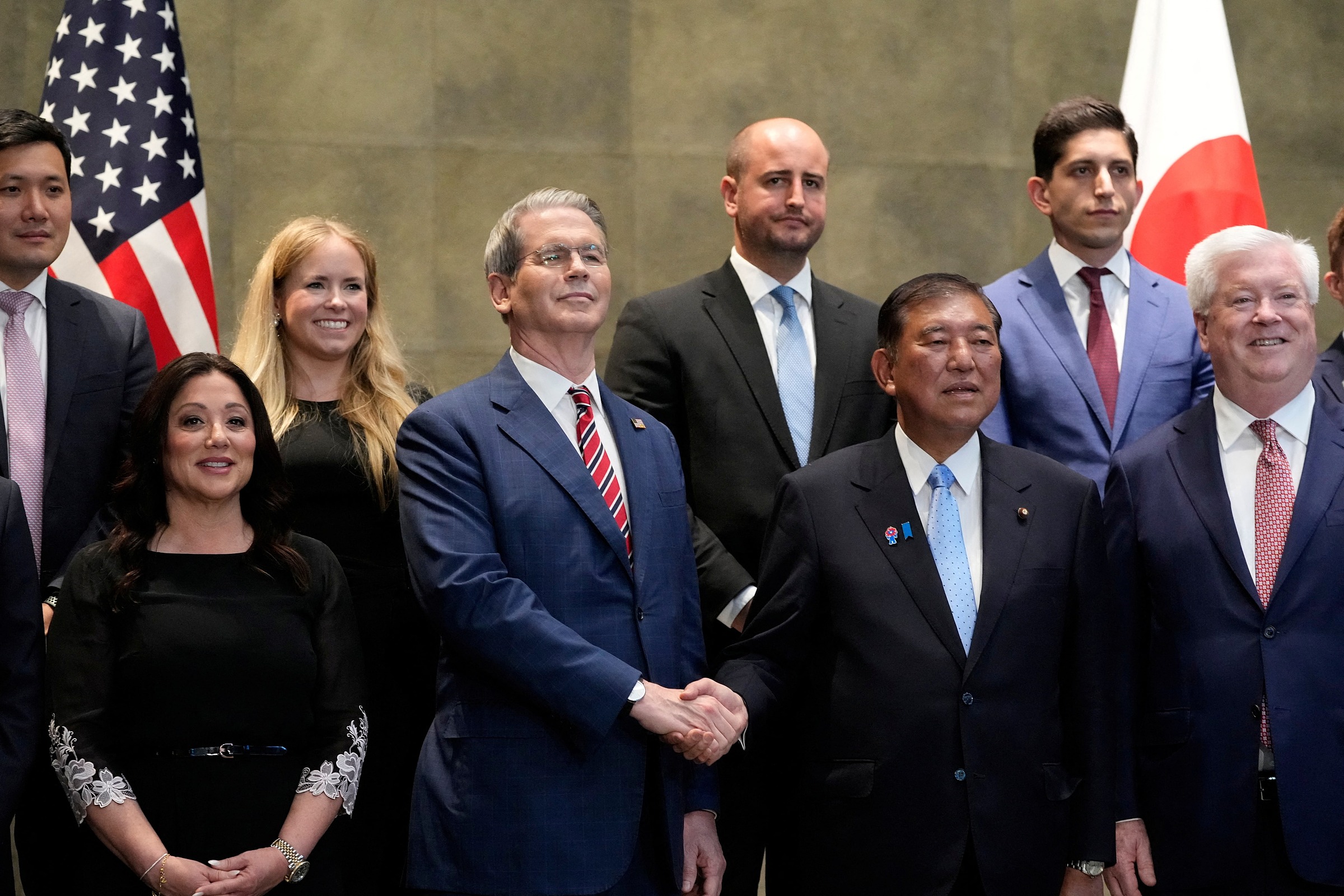On 18/7, US Treasury Secretary Scott Bessent posted on X: "A good deal is more important than a rushed deal. A mutually beneficial US-Japan trade agreement is still achievable".
He expressed his desire to "continue formal negotiations in the future" with Japan. This week, Bessent held discussions in Tokyo with Prime Minister Shigeru Ishiba and Japan's Minister of Economic Revitalization Ryosei Akazawa, the head of the Japanese negotiating team.
Speaking to reporters after the meeting, Prime Minister Ishiba said he had asked Bessent to continue "active negotiations" with Akazawa. Akazawa also confirmed that both sides agreed to maintain a constructive dialogue.
 |
US Treasury Secretary Scott Bessent shakes hands with Japanese Prime Minister Shigeru Ishiba on 18/7. Photo: Reuters |
US Treasury Secretary Scott Bessent shakes hands with Japanese Prime Minister Shigeru Ishiba on 18/7. Photo: Reuters
Japan was one of the first countries to officially start negotiations with the US, but no agreement has been reached so far. Over the past few months, US President Donald Trump has repeatedly complained that Tokyo is "very tough" in negotiations and refuses to buy US rice.
On 7/7, Trump sent the first round of tariff notices to trading partners who had not reached agreements with the US. Accordingly, all goods from Japan to the US would be subject to a 25% import tariff, starting 1/8. This is higher than the 24% announced on 2/4.
Previously, like other countries, Japanese aluminum, steel, and cars exported to the US were subject to a 25% tariff.
Trump raised concerns this week about the prospects of a US-Japan deal, declaring that Japan "doesn't open its markets". Earlier this month, Ishiba also affirmed that "it won't be easy to make concessions".
The US is currently Japan's largest export market. Data released on 17/7 showed that Japan's exports to the US fell for the second consecutive month due to the impact of import tariffs.
Accordingly, exports to the US decreased by 11.4% in June compared to the same period last year. This is the largest decline since the beginning of 2021. Car exports alone fell by nearly 27%. Auto parts decreased by 15.5%, and pharmaceuticals dropped by 41%.
However, the number of cars exported increased by 3.4%, suggesting that Japanese car manufacturers are lowering prices and accepting import tariffs to remain competitive.
Ha Thu (AFP, Reuters)












